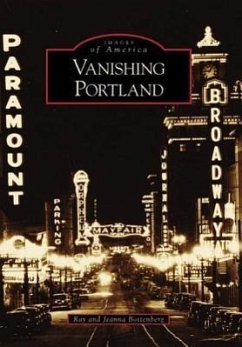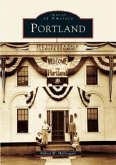Portland at the end of World War II was an international port and a powerhouse of the timber and shipbuilding industries. Oregonas largest city grew and changed in the decades that followed, adding new industries and population. It also endured reductions in shipbuilding capacity, a devastating flood, a declining timber industry, urban renewal, freeway construction, and social change. By the 1990s, a wave of globalization and big-box retail marketing swelled shipping at the cityas port and swept away a surprising number of Portlandas businesses, which remain in the fond memories of Portlanders. A few of these memorable icons include the stores Meier and Frank, J. K. Gill, Payless Drug, and Sprouse-Reitz; the restaurants Henry Theile, Jolly Joan, Tik Tok, Yawas Top Notch, and Waddleas; the Jantzen Beach Amusement Park; the Portland Hotel; the Broadway, Fox, and Orpheum theaters; Henry Weinhardas brewery; the Ramblina Rod television show; and Portland Wrestling.
Hinweis: Dieser Artikel kann nur an eine deutsche Lieferadresse ausgeliefert werden.
Hinweis: Dieser Artikel kann nur an eine deutsche Lieferadresse ausgeliefert werden.








